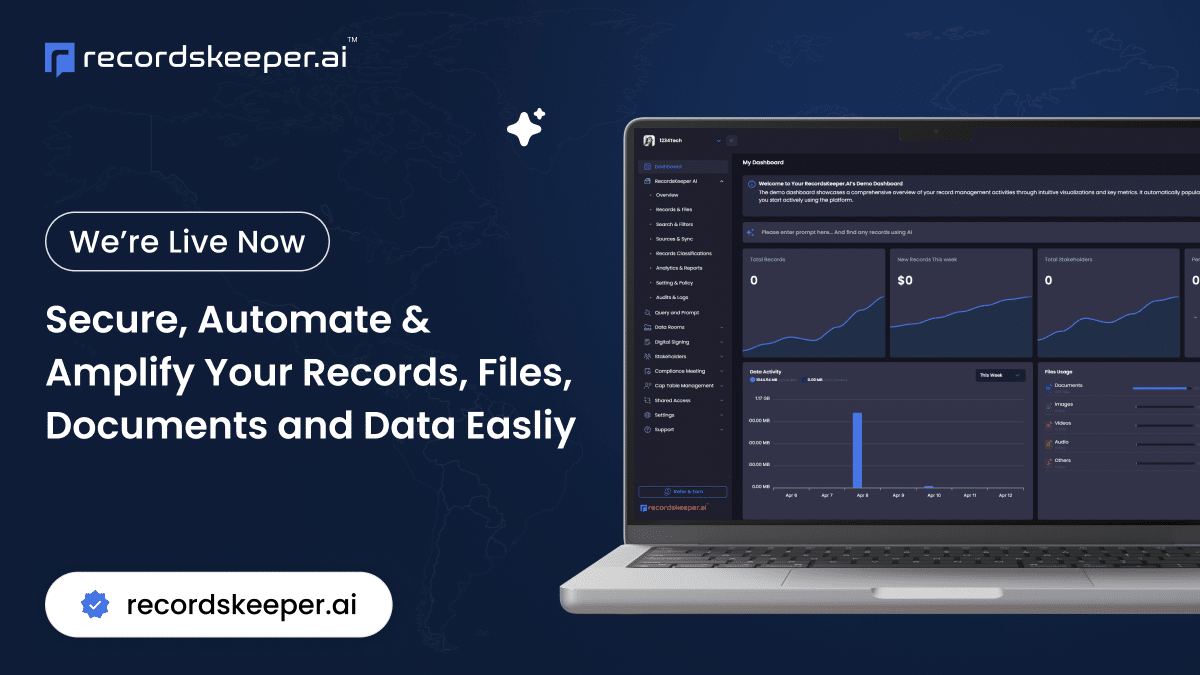As the founder of RecordsKeeper.AI, I recognize the profound responsibilities that come with managing sensitive data like electronic health records (EHR). Security and compliance are not just requirements for health institutions; they are mandates to uphold patient trust and ensure the integrity of the healthcare system. In today’s digital age, safeguarding an electronic health records database is more crucial than ever.
Understanding the Importance of a Secure EHR Database
The core of a healthcare provider’s information system is its EHR database. It holds the key to efficient patient care, enabling healthcare professionals to access vital medical data promptly. Yet, with this digital evolution comes the challenge of securing medical data from cyber threats, unauthorized access, and data breaches.
The significance of maintaining a secure EHR system cannot be overstated. Not only does it ensure patient confidentiality, but it also fosters trust, which is indispensable for any healthcare provider. Moreover, compliance with regulations like GDPR in Europe, HIPAA in the USA, and other jurisdictional standards is legally obligatory to protect patient privacy and information.
Implementing Security Best Practices in EHR Systems
Let me walk you through some best practices that are instrumental in protecting an electronic health records database. Leveraging AI and blockchain technology effectively can be a game-changer in this domain.
1. Data Encryption
Every piece of patient data, whether stored or in transit, must be encrypted. This means using algorithms to encode data, making it unreadable to unauthorized users. Encryption ensures that even if data is intercepted, it remains inaccessible without the appropriate decryption key.
2. Access Control Mechanisms
Implement stringent access control policies. Access to the EHR database should be on a need-to-know basis. Multi-factor authentication (MFA) can bolster the security layer, ensuring that only authenticated users gain access to medical data. Additionally, role-based access control (RBAC) should be enforced to restrict permissions based on user roles.
3. Regular Audits and Compliance Checks
Develop a robust audit strategy to monitor and review access logs regularly. Keeping an eye on who accessed what information and when can help detect unauthorized activities swiftly. Continuous compliance checks against mandated healthcare regulations should be a part of these audits to ensure adherence to legal standards.
4. Blockchain Integration
Introducing blockchain into EHR systems can offer unparalleled data security. Blockchain technology creates an immutable ledger, ensuring that any alterations in patient records can be traced back with complete transparency. It assures data integrity, preventing unauthorized modifications.
5. Regular Training and Awareness
One of the weak links in any digital system is human error. Regular training sessions for healthcare staff on the importance of data security can mitigate risks. Awareness campaigns can inform staff about phishing attacks, the importance of strong passwords, and the implications of data breaches.
6. Automatic Data Backup and Recovery
In the unfortunate event of data loss, having a reliable backup system ensures that patient information can be recovered quickly. Automatic backups reduce the likelihood of data being compromised, and a regular schedule ensures that the latest information is preserved.
Ensuring Compliance in Healthcare IT
Compliance shouldn’t be seen merely as a box-ticking exercise but as a crucial component of securing an electronic health records database. Utilizing automation tools to handle regulatory requirements can simplify the compliance process. At RecordsKeeper.AI, we have designed our platform to ease these burdens, employing AI to automate compliance workflows, ensuring that standards are consistently maintained.
Ensure that your EHR database complies with region-specific regulations. Regular consultations with legal experts can provide clarity on any updates or changes in compliance protocols, safeguarding your practice from potential legal issues.
Final Thoughts
Securing your electronic health records database extends beyond technological solutions. It is about adopting a holistic approach that encompasses technology, process optimization, and awareness. By embracing these best practices, healthcare providers can ensure not only patient data security but also build a resilient foundation for future healthcare IT advancements.
For those passionate about making significant strides in healthcare, I invite you to explore our solutions at RecordsKeeper.AI. By prioritizing security and compliance, we can collectively advance the delivery of healthcare services, ensuring data protection that meets the highest standards.
Stay connected for more insights on healthcare IT and compliance innovations. Together, let’s lead the way towards a more secure and efficient healthcare system.








